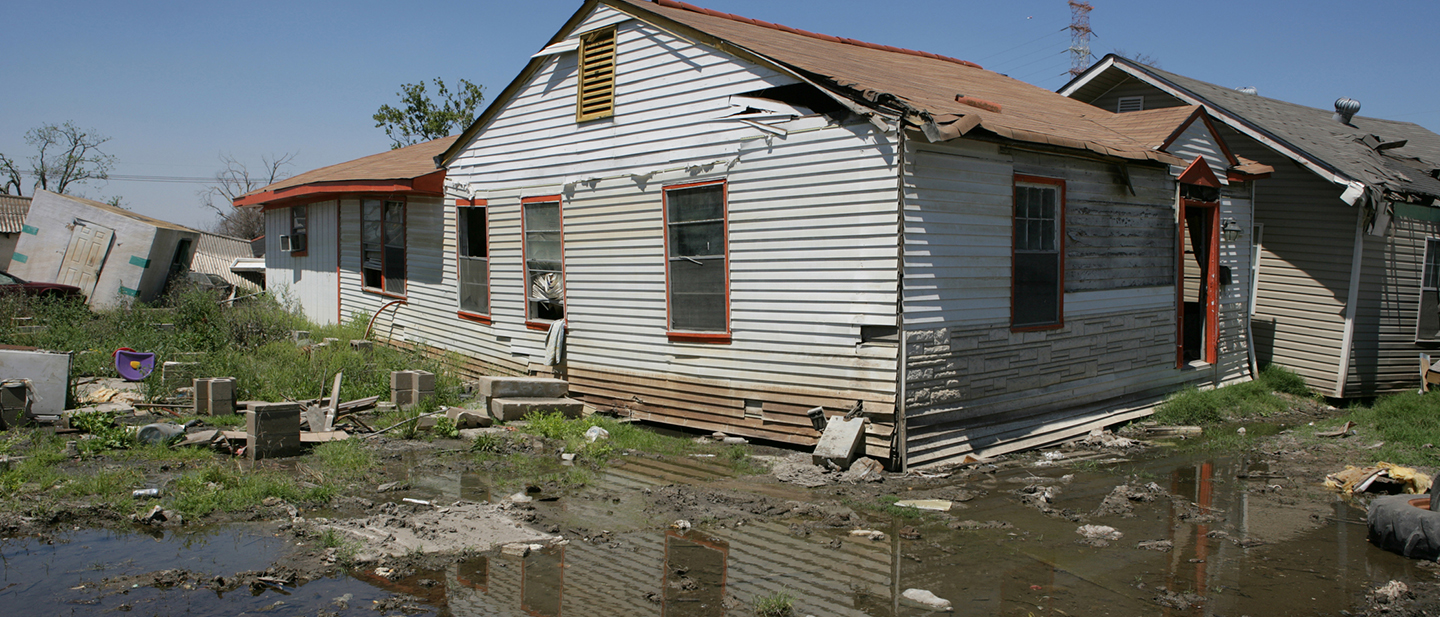DANIEL’S TAKE
Part 2 of 2 – From the Lower 9th Ward to Maui: Fighting Forward and Empowering Displaced Communities

In the wake of catastrophic events such as hurricanes Katrina and Rita, and the recent wildfires that swept through Maui, Hawaii, the stories of devastation often share a common thread: the emergence of disaster capitalism and the looming threat of climate gentrification. These terms may sound unfamiliar, but their implications are far-reaching and profound. As communities grapple with displacement, trauma, and the arduous task of rebuilding, it becomes evident that action is not only necessary but urgent. Collectively, and in the most urgent way, we must shed light on the unsettling phenomenon of disaster capitalism, the insidious nature of climate gentrification, and the steps that displaced communities, advocates, activists, allies, and impacted residents can and must take to fight forward, raise awareness, and foster a united front against these injustices. From education and empowerment to accountability and legislation, together, we can forge a path toward justice and resilience.
As we confront the unsettling realities of disaster capitalism and climate gentrification, it is crucial for those displaced communities, advocates, activists, allies, and impacted residents to unite in the fight for justice, awareness, and education. Empowering ourselves and our communities is the first step towards dismantling predatory practices and ensuring that the burdens of climate change are not disproportionately borne by the most vulnerable. Here are seven actionable steps to take, along with a powerful call to action:
- Educate and Raise Awareness— Knowledge is power. Displaced communities and their allies should educate themselves and others about the harmful practices of disaster capitalism and climate gentrification. Host workshops, seminars, and informational sessions to educate stakeholders and learn how to identify corporate partners versus predatory developers, while ensuring that the term “climate gentrification” becomes part of the collective vocabulary, fostering a deeper understanding of the challenges at hand.
- Build Community Networks— Strength lies in numbers. Forge connections and collaborations with other impacted communities, local organizations, and advocates who are fighting similar battles. Forming alliances can amplify your voices, share resources, and create a united front against predatory developers and unjust practices.
- Demand Accountability— Hold developers, corporations, and decision-makers accountable for their actions. Advocate for transparent and ethical rebuilding processes that prioritize the needs of the affected communities. Voice your concerns at local government meetings, engage in public discourse, and demand fair representation in reconstruction plans.
- Foster Community-Led Development— Displaced communities should actively participate in the design and implementation of rebuilding efforts. Advocate for community-led development that takes into account the unique cultural, social, and economic needs of the residents. This approach can mitigate the risk of exploitative development and ensure a sustainable future.
- Push for Legislation and Policies— Advocates and activists should lobby for legislation that safeguards against disaster capitalism and climate gentrification. Propose and support policies that protect vulnerable communities, ensure affordable housing, and prevent unjust property acquisition in the aftermath of disasters.
- Raise Awareness About Climate Reparations— The concept of climate reparations is gaining momentum as a way to address the injustices caused by climate change. Displaced communities and their allies should raise awareness about this idea and advocate for meaningful compensation from the entities responsible for the climate crisis. This can provide much-needed financial support for impacted individuals and communities.
- Empower Through Education— Education is a tool for empowerment. Organize workshops, seminars, and informational campaigns about financial literacy, property rights, and legal resources. Empower displaced individuals with the knowledge they need to navigate the complexities of recovery and rebuilding.
In the face of disaster capitalism and climate gentrification, action is not just necessary; it is imperative. Displaced communities, advocates, activists, allies, and impacted residents have the power to rewrite the narrative and demand justice. By uniting our voices and efforts, we can create a future where those who have suffered the most are not further victimized by unscrupulous practices.
Let us work together to amplify the term “climate gentrification” until it reverberates in every corner of society. Let us demand accountability, transparency, and fairness from those who wield power. Let us build networks of support and solidarity that transcend geographical boundaries. Let us push for legislation that protects the rights and dignity of every individual, regardless of their socioeconomic background.
The idea of climate reparations provides a glimmer of hope in a world burdened by climate change. By advocating for this concept, we can seek justice for those who bear the brunt of the crisis and challenge the status quo that perpetuates inequality.
The time for action is now. Continue to educate yourself about disaster capitalism, climate gentrification, and the exploitation of vulnerable communities. Stand with displaced individuals and communities in their quest for justice and resilience. Let us create a future where compassion and solidarity triumph over greed and exploitation. Together, we can rewrite the narrative and build a world that truly cares for its people, regardless of the challenges they face.
